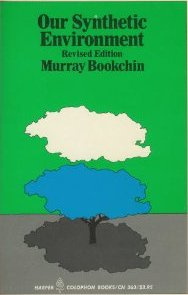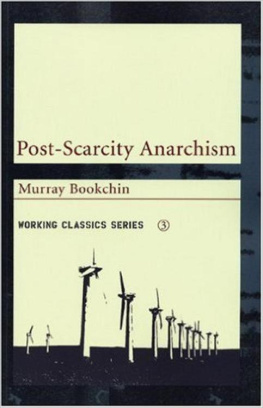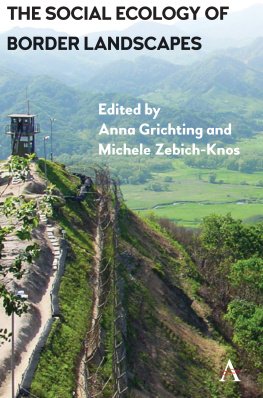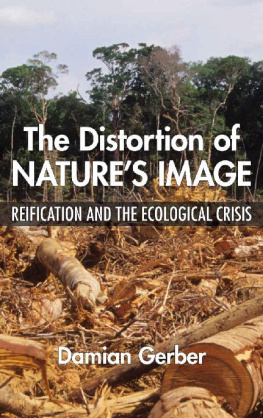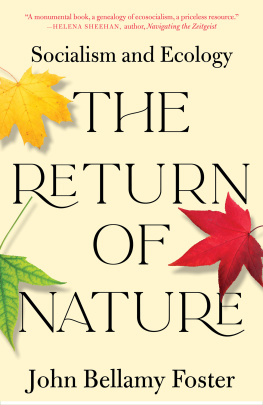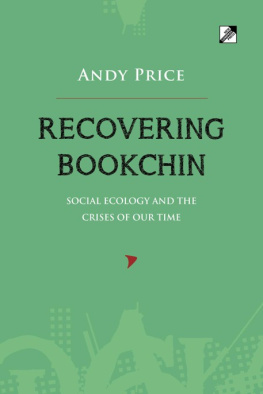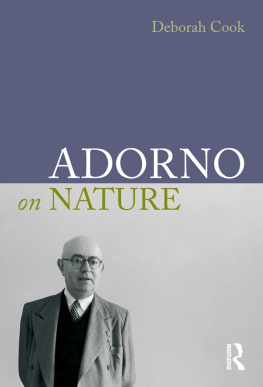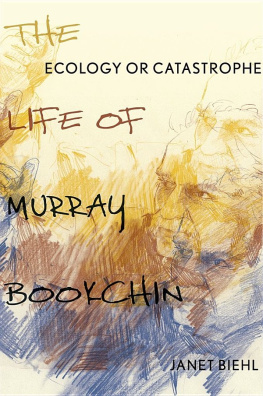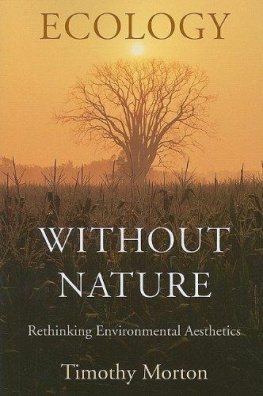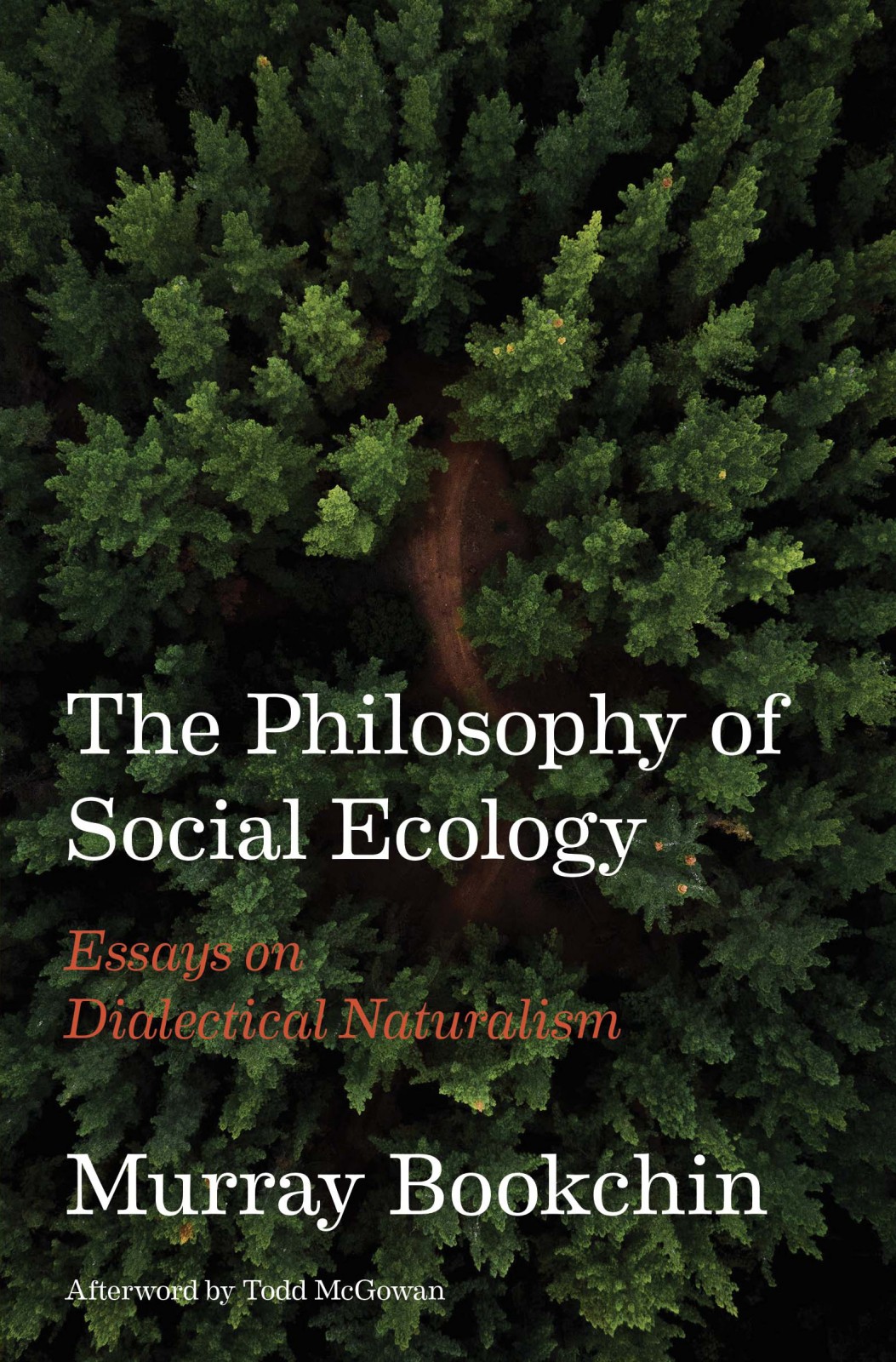Preface to the Third Edition
This book, which outlines perhaps more lucidly than any other the philosophical foundations of Bookchins dialectical naturalism, was originally published in 1990, followed by a revised second edition in 1996. As Bookchin noted in a preface to the second edition, the essays were originally written as individual polemics in response to tendencies that were developing in the ecology movement at the time. Collected together they also function as a coherent whole, elucidating the philosophical basis of Bookchins reconstructive social theory, social ecology.
As is inevitable with the passage of time, some outmoded aspects of what he termed his revision of these essays for the second edition have, in turn, raised the question of whether further revision is necessary. I have chosen to avoid a heavy-handed editorial approach, retaining the majority of Bookchins more polemical passages from the second editionsuch as his critiques of deep ecology, relativistic New Age ideologies, and post-modern nihilismeven where some of these subjects have since receded in popularity. It is my view that these intellectual traditions which Bookchin is criticizing form a foundational backdrop against which he is able to develop his philosophy of dialectical naturalism. Without this context, the overall development and structure of The Philosophy of Social Ecology would suffer. At the same time, I have restored certain important passages and original phrasing from the first edition, that were omitted from the second, including anthropological observations about womens roles in eco-societies.
Any truly dialectical philosophy would insist that no thought can be looked upon in abstraction, independently of its socio-historical context. Since Bookchin first authored The Philosophy of Social Ecology, there have been various developments in nature philosophy that qualify any informed engagement with it. The historical context for many of these ideas are elaborated in Damian Gerbers indispensable book, The Distortion of Natures Image: Reification and the Ecological Crisis and I wish to thank Gerber for his astute observations and suggestions with respect to philosophical trends discussed in this book as well. Similarly, for those interested in an incisive elaboration of Bookchins critique of deep ecology, there is no better volume than Andy Prices Recovering Bookchin: Social Ecology and the Crises of Our Time.
The ideas discussed in this book underpin Bookchins whole theory of social ecologybut they are also essential because of the effort he undertakes to formulate an objective ecological ethics, one that transcends the largely subjective ethics of our contemporary world, and looks rather to the dialectic present within nature itself for guideposts to creating a free and ecological society. In order to fully grasp Bookchins project, it is necessary to understand his particular use of terminology, explained here in his own words, as taken from the second edition preface, which has otherwise been integrated into the essays in this volume:
Nature properly encompasses everything around us, from the organic beings that we normally designate as natural to the lifeless moon that appears on relatively cloudless nightsthat is, the totality of Being. However, if we are to use the word Nature in any more specific sense, we should use an adjective before it to describe what aspect of nature we are talking aboutsomething that I often did not do in these essays, owing to the time period in which they were written. The reader who encounters the word nature herein, unmodified by any adjective, should now take it to refer to my notion of first nature, or the cumulative evolution of the natural world, especially the organic world. This first nature exists in both continuity and discontinuity with second nature, or the evolution of society. As I discuss in some detail in Thinking Ecologically, second nature develops both in continuity with first nature and as its antithesis, until the two are subsumed into free nature or Nature rendered self-conscious in a rational and ecological society.
Society , in turn, is more than mere consociation or community. It is institutionalized community, structured around mutable organizational forms that may range from totalitarian despotism to libertarian municipalism. As such, society is specific to human beings; indeed, an expression like social insects is, from my standpoint, nonsensical and oxymoronic, conflating a fixed, genetically programmed aggregation of animals with the developmentally structured consociation of humans. As for reason and rationality , when I use these terms without any qualifying adjective, I mean dialectical reason , a secular dialectical logos , as contrasted with instrumental or conventional reason , an ordinary mental skill. History , as I argue in the final essay, is the cultural and social unfolding of reason, not simply a succession of events over time, for which I reserve the word Chronicles . Civilization is the actualization in varying degrees of historical unfolding, while Progress is, more loosely, the self-directive activity of History and Civilization toward increasing rationality, freedom, and self-consciousness in relationships between human and human, and in the relationship of humanity to the natural world.
In its influence upon, and reflection within, contemporary revolutionary movements around the world, Bookchins Philosophy of Social Ecology has proven to be not merely a scholarly work but the foundation of a living, breathing, and continuously evolving praxis. Dialectal naturalism forms the basis of a core tenet of the Kurdish freedom movement, which gained prominence after the Arab Spring in 2011, and has been deeply informed by Bookchins work in its configuration of a new ecological politics, empowered, in particular, by the prominent role played by women in every aspect of society and by a directly democratic confederation of cities, towns, and villages. The Kurdish movement has shown us promising glimpses of what a rational, ecological political system might look like, advanced along the lines of an objective ethics rooted in radically democratic notions of community.
The Philosophy of Social Ecology makes a groundbreaking contribution to dialectical philosophy applied to the study and practice of ecological ethics. I hope readers will find it a compelling work of speculative reason that seeks to uncover the kind of philosophical framework necessary to help us build a more rational society.
Debbie Bookchin
September 16, 2021
Introduction: A Philosophical Naturalism


